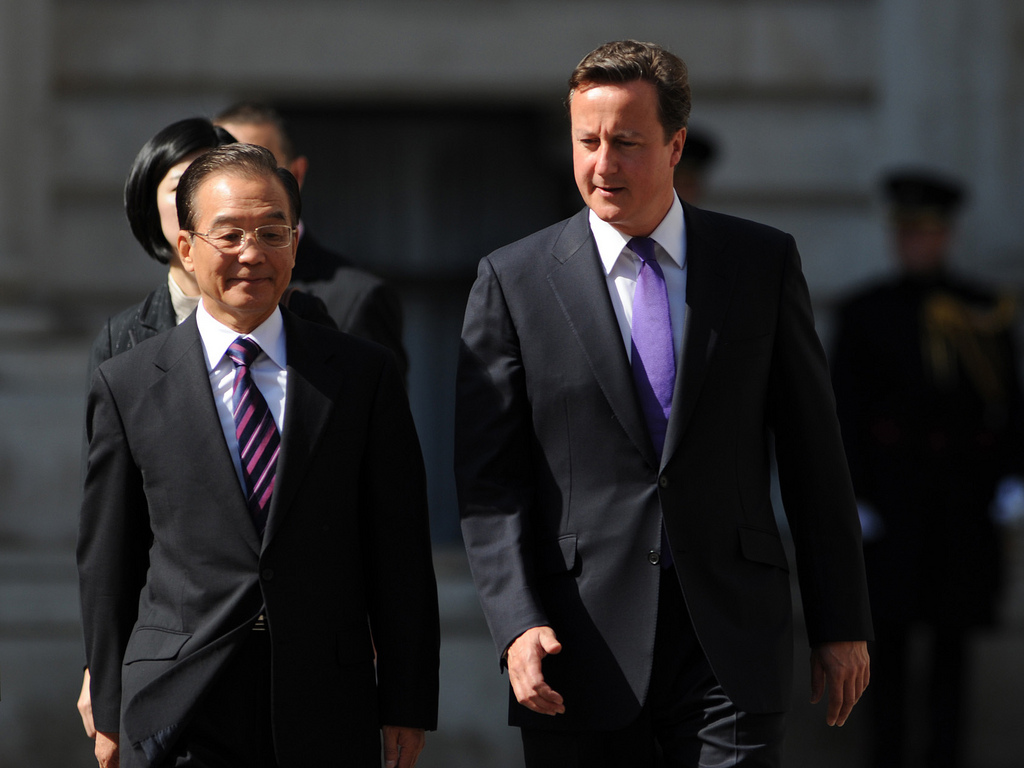 The Ditchley Foundation
The Ditchley Foundation is a respected British think tank established in 1958 to strengthen trans-Atlantic ties. Today it’s increasingly interested in the Asia–Pacific and I attended a recent Ditchley conference on ‘Security and Prosperity in East Asia’, a gathering of fifty or so that included current and retired officials, researchers, journalists and people from the private sector.
So what do the great and good (plus yours truly) think about Asia when they
gather at an English country manor? The meeting was run under the
Chatham House Rule, so I can’t attribute specific comments, but here are my highlights of the discussion.
The state of China–US bilateral relations dominated. The good news is that most people thought there was a depth of engagement between China and the United States and a mutual commitment to keep the relationship stable and strong enough to manage strategic tension. The bad news is that the same people thought that there was a profound mistrust between the two countries and a lack of confidence-building and crisis-management mechanisms. China sees calls for transparency in defence planning as a Western stratagem to constrain its freedom of movement. In turn, the US and its allies think Beijing’s accusations of having a ‘
Cold War mentality’ avoid serious discussion about managing tensions.
Some Cold War thinking could actually help in the Asia–Pacific if that meant China and the US developed a clearer understanding on issues such as how their military forces behave when they interact at sea or in the air, how nuclear weapons are controlled and how crises can be kept limited to prevent escalation. Such understandings are only rudimentary right now. Both Washington and Beijing will have to make big changes to adapt to a more overtly managed relationship. There’s some reluctance to do this because a more managed relationship constrains both parties. But constraints reduce the prospect for conflict. Better to be bound than obliterated. There’s a school of thought in Washington that elevating China to peer status by adopting the sort of management techniques used with the Soviet Union is premature. I think it’s too late—they need to accept the near-peer relationship or risk a lot of destabilisation.
So what happens to the rest of the Asia–Pacific when, as one Ditchley participant puts it, there are two suns in the sky orbiting around each other? There is a risk that if China and the US try to manage their relations as a group of two, the rest of the region will be disenfranchised from shaping their own security. That’s a recipe for conflict. The solution is to develop a more advanced multilateral security framework in the Asia–Pacific. A key objective must be to bring China willingly into this framework. The US will play a lead role, but Asia-Pacific medium powers will be important too because they have the capacity to block or embrace new multilateral cooperation.
There was some scepticism about whether the region had the drive to strengthen multilateral cooperation. Participants who had experienced the less-than-dynamic ASEAN Regional Forum effort to build cooperation in the 1990s worried that the same institutions may be no more effective in the 2010s. Some positive factors, though, include the establishment of the East Asia Summit, the ASEAN Defence Minister’s Meeting and its engagement with the ‘Plus Eight’ external players. Unlike the 1990s, many countries in the region see a compelling interest in closer cooperation with the US. None want to choose between the ‘two suns’ and many are prepared to draw closer to Washington in military terms. Washington’s challenge is to accommodate Beijing at the same time as it asserts its and the region’s own strategic interests—a tricky prospect. Even deeper economic integration was seen to be a necessary part of transitioning to a more managed multilateralism. Many participants saw a need for a north Asian security mechanism: the Group of Six minus North Korea perhaps?
British attendees realised the necessity of strengthening their own Asia-Pacific engagement, but it’s too soon to think of this as London’s own ‘pivot’ to the region. By far the biggest UK priority is deeper economic and financial links with Asia’s growth powerhouse. Strategic and defence engagement is a much lower priority but the UK gets the point that such a commitment is necessary to be treated as a full partner by Asia’s emerging middle powers. There is a lot of value that the UK can add: a sustained strategic dialogue with China and other key regional players helps reinforce the emergence of norms of behaviour in defence engagement. The UK could also find countries willing to work with it on maritime confidence-building measures, where the Royal Navy has important practical experience to offer. And we shouldn’t forget Britain’s continuing membership of the Five Power Defence Arrangements—the region’s only working operational military multilateral security mechanism. A UK more deeply engaged in Asia works nicely to Australia’s own strategic interests. It’s a role we can both support and facilitate—but given the UK defence cuts of late, there might be questions about Britain’s ability to adequately resource a long-distance military engagement.
In all, the Ditchley Foundation conference was a welcome development and one that foreshadows a deeper European interest in the Asia–Pacific. That’s good news for Australia because we are well placed to inform and shape the nature of closer European engagement with our own region.
Peter Jennings is executive director of the Australian Strategic Policy Institute. Image courtesy of Flickr user Foreign and Commonwealth Office. Print This Post
Print This Post